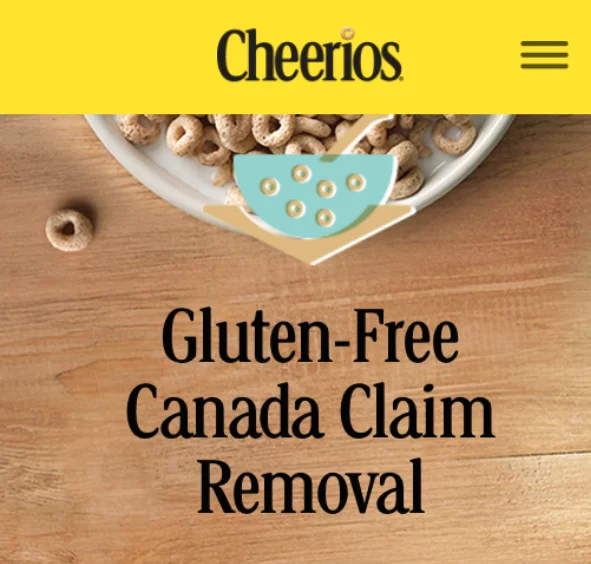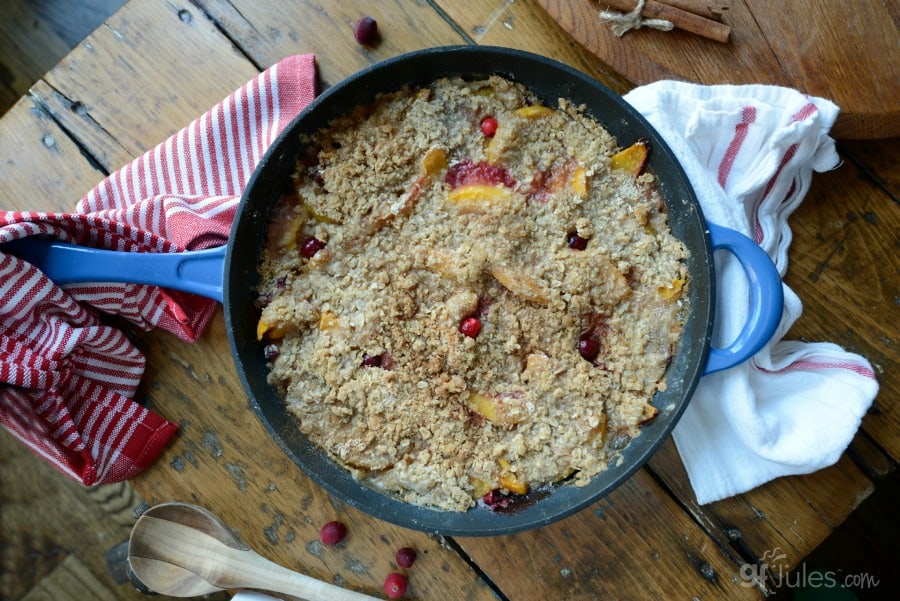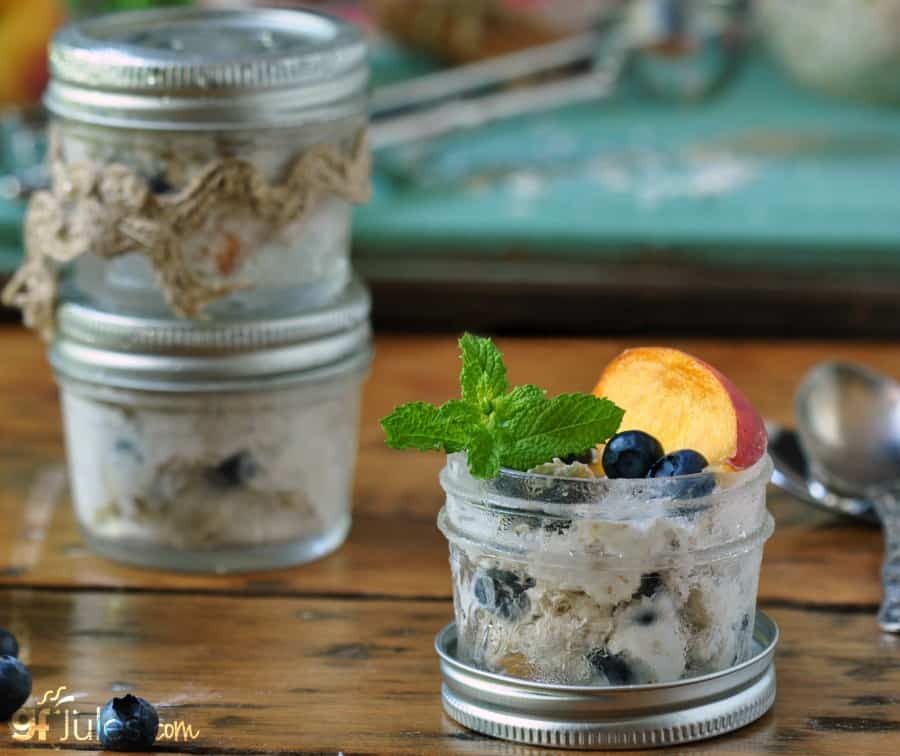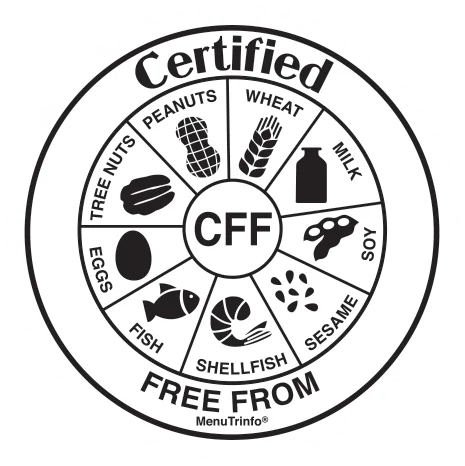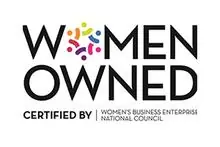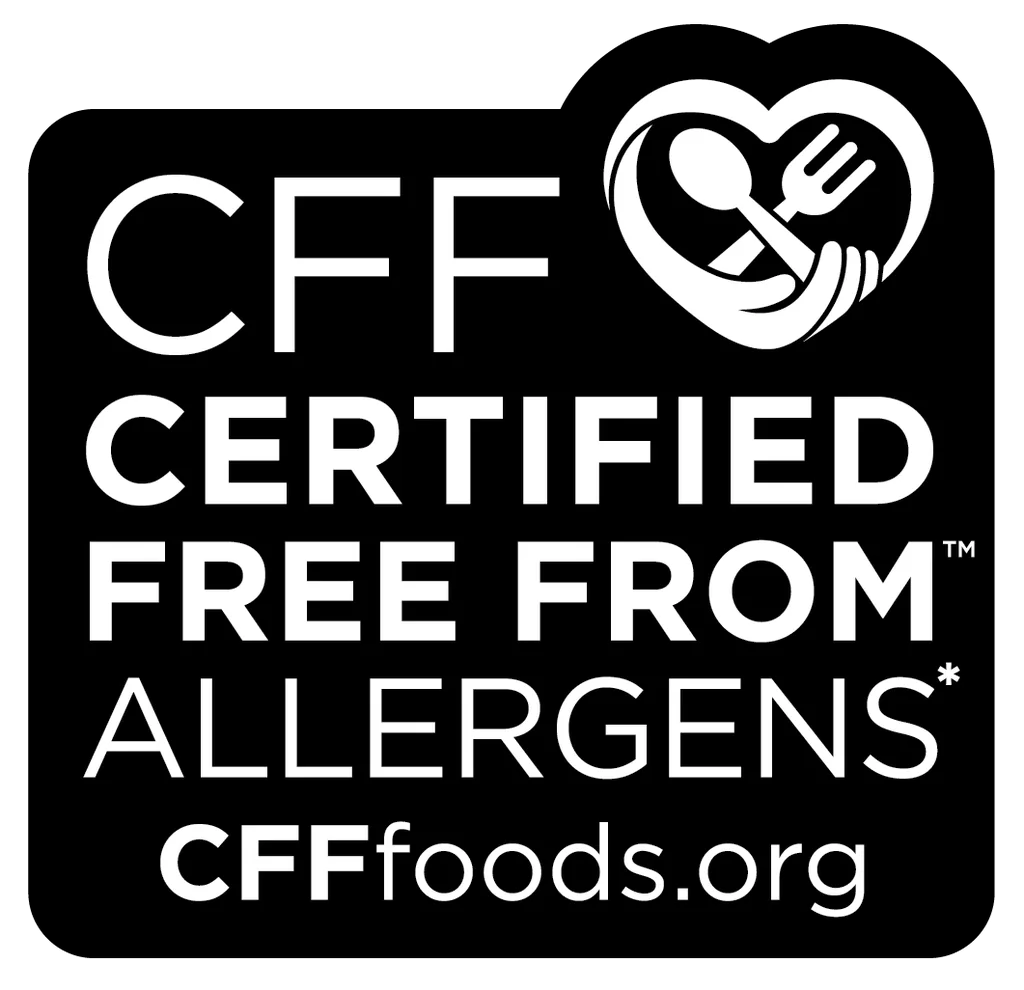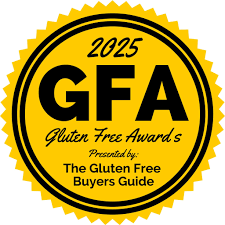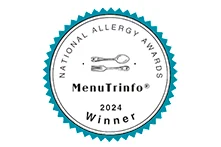Is oatmeal gluten free? I remember asking that of my doctor when I was first diagnosed with celiac disease in the 1990s. At the time, I was told that oatmeal was right up there next to wheat, barley and rye on the “Do Not Eat” list.
Since then, thankfully, scientists have learned that oats are gluten free (oatmeal is gluten free too, unless other grains were added to it). The reason oatmeal had historically tested positive for gluten was because it was contaminated with gluten-containing grains during the growing, harvesting, milling and packing stages.
Why Oats are Gluten Free
Oats are a cereal grain in the Poaceae grass family. Oats contain the protein avenin — similar to gluten but safe for most people with celiac disease. Oats do not contain gluten.
Oat groats are similar in size and shape to other grains like wheat, barley and rye, so the same machines have long been used to process both.
Luckily, in many countries there are now dedicated fields and machines to produce and pack oatmeal, which is then tested by independent agencies to ensure that it contains less than 10ppm gluten (less even, than the FDA standard of <20ppm gluten). These are known as “purity protocol gluten free oats,” or in Canada, “pure oats.”
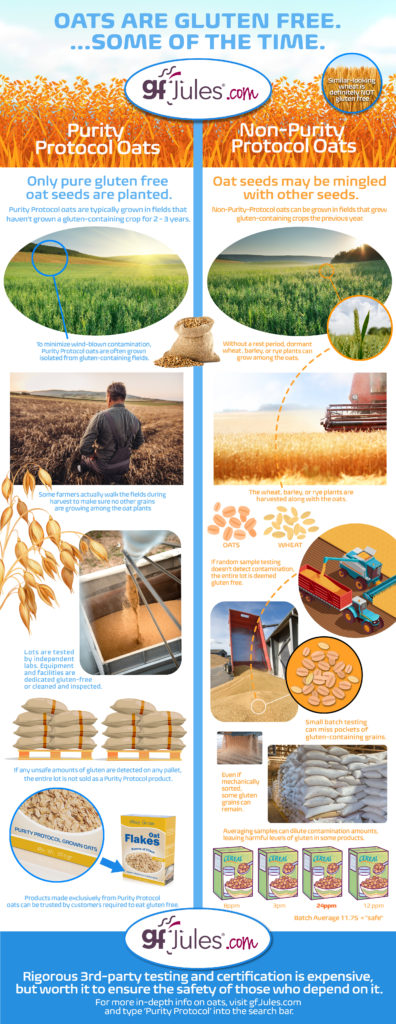
Are Oats Safe for Celiacs?
However, some still doubt that oatmeal should be included on a gluten free diet. For those of you still unsure if certified gluten free, purity protocol oatmeal is safe for celiacs and others with gluten sensitivity, these study results should help.
Research from Wageningen UR (University & Research Centre) has concluded that of the 29 internationally agreed toxic peptides of wheat, barley or rye which cause reactions in people with celiac or gluten intolerance, none are present in oats. A recent genomic study of oats also found that in fact oats bear closer genomic and protein similarities to rice than to wheat.
A study published in the Journal of Pediatrics demonstrated that pure oats are a safe dietary choice, even in the treatment of children with celiac disease.
Another study concluded that a “normal” amount of oats are a safe gluten-free option for most CD patients, but that some oats may not be as immunogenic as are other oat cultivars — meaning that if you’ve tried one brand of certified gluten-free oatmeal and it didn’t agree with you, you may want to switch brands.
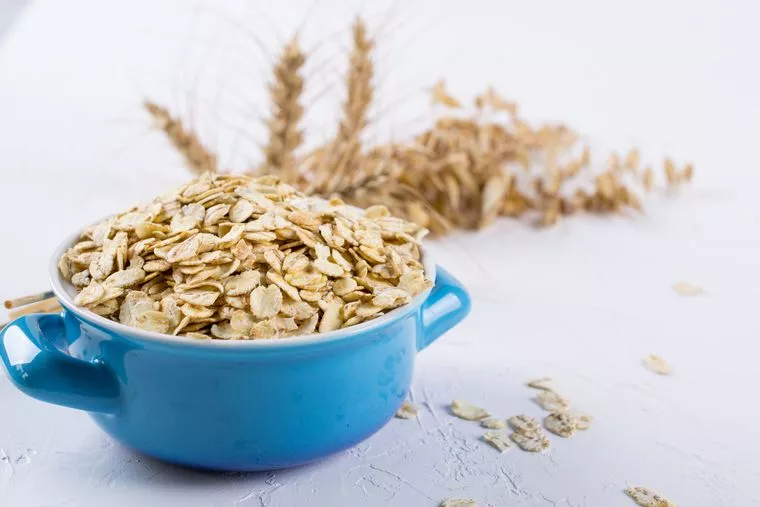
It should be noted, however, that if you are still experiencing celiac-like symptoms even after trying different brands of gluten free oatmeal, you may be one of a newly-recognized group of celiacs for whom oats trigger an immune response. One study found that 8% of celiacs fall into this category.
What does this mean for you? It means that if your doctor says you can try certified gluten free purity protocol oatmeal on your gluten-free diet, you should!
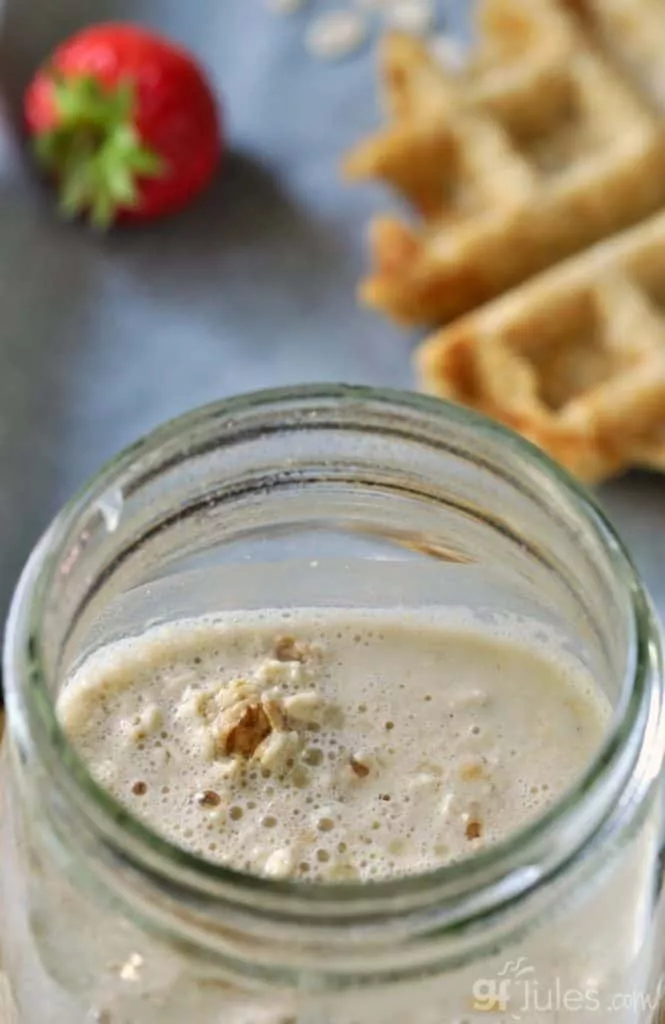
Oats are über healthy, delicious and versatile, and make a gluten free diet all that much easier to follow. Even Health Canada has come around now to recognize that because the majority of celiacs can tolerate a moderate amount of “pure oats” in their diets (40-100 g/day), “there is no conclusive evidence that the consumption of uncontaminated oats by patients with CD should be limited to a specific daily amount.”
Due to the high fiber, protein and healthy carbohydrates abundant in pure oats, adding them to the gluten free diet should be encouraged for most people.
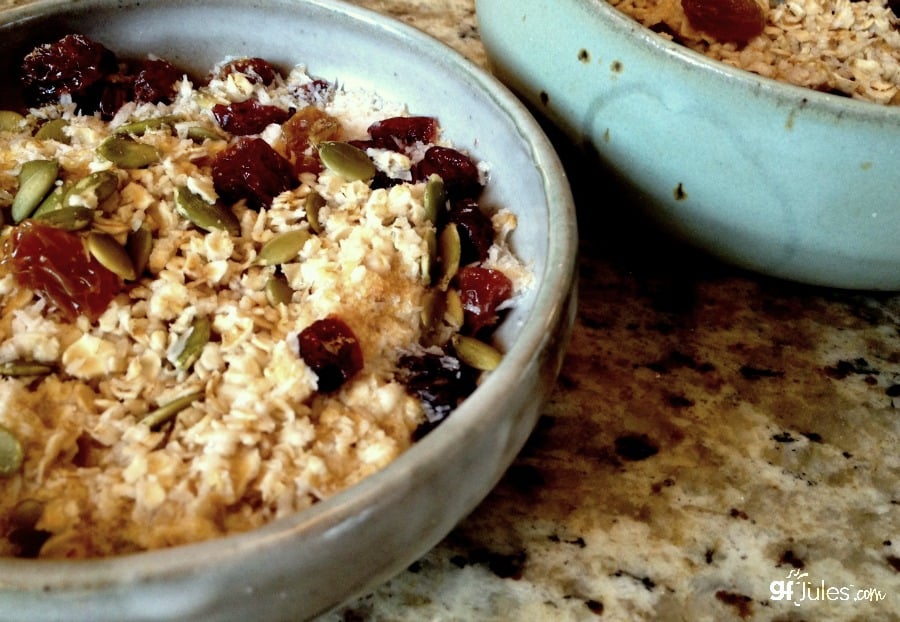 Adding a healthy bowl of gluten free oatmeal to your breakfast options, oatmeal crisp and oatmeal cookies to your dessert choices, and oat flour to your scones and breads can dramatically increase not only the nutrition in your diet, but also your happiness while sticking to it.
Adding a healthy bowl of gluten free oatmeal to your breakfast options, oatmeal crisp and oatmeal cookies to your dessert choices, and oat flour to your scones and breads can dramatically increase not only the nutrition in your diet, but also your happiness while sticking to it.
If You Have Celiac Disease, Eat Only Purity Protocol Oats
It is essential, however, that you purchase only certified gluten free oats also made from growers using “purity protocol” oats so that the oats are not contaminated with other gluten containing grains during growing, harvesting, milling and packing. To learn more about “mechanically separated” versus “purity protocol” oats, listen to this “Gluten Free Voice” free podcast. (*Note: the guest on this episode was the owner of Gluten Free Harvest Oats; he no longer owns that company and the company has since had troubles maintaining its status as a purity protocol oats supplier)
For help in label reading to be sure you’re buying only safe purity protocol and certified gluten free oats, and to learn more about why experts believe it is unsafe for celiacs to eat oats that are not grown under the purity protocol, read my article on Shopping for Safe Gluten Free Products.
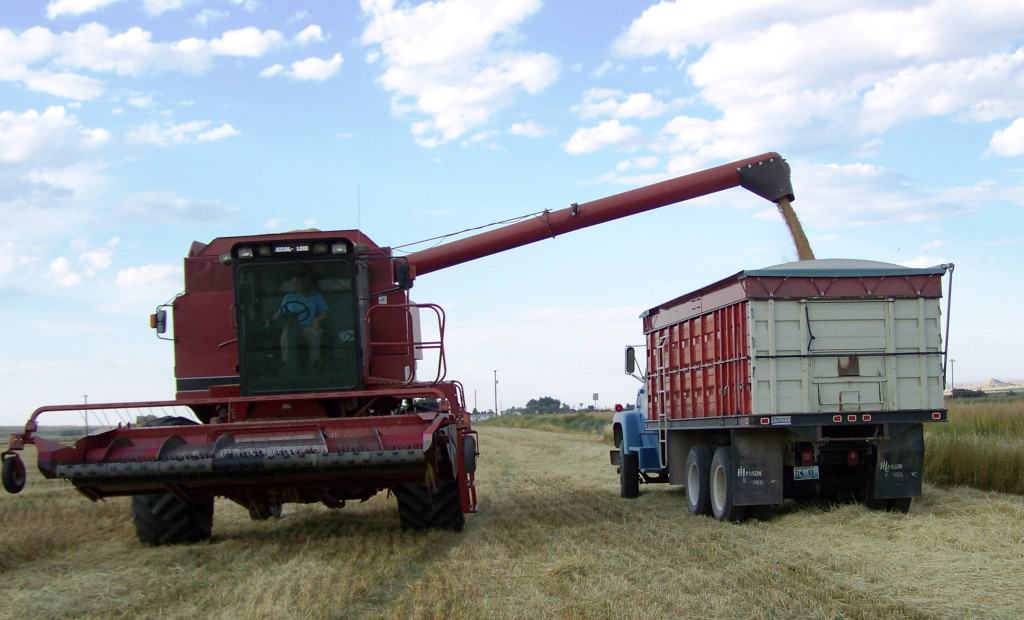
Oats are a naturally gluten-free grain; however, it has been well-documented that oats are frequently cross-contaminated with gluten-containing grains, especially barley and wheat. Health Canada scientists have tested commercial oat samples and found high levels of gluten contamination.
Cross-contamination occurs because oats often are grown in rotation with other crops, harvested and transported with equipment that is also used for gluten-containing grains.
When General Mills first sought to introduce so-called “gluten free” Cheerios in Canada (made with mechanically or optically sorted oats, not purity protocol oats), the Canadian Celiac Associate (CCA) reacted to the news with this position statement recommending that celiacs NOT eat these Cheerios or any other products made with sorted oats:
We know the following:
- Oats are an extremely high risk grain and even “gluten-free oats” are at high risk for gluten contamination.
- It is very difficult to remove gluten-containing grains from oats using optical and mechanical technology alone because barley and wheat are similar in size, shape and color as oats. Broken kernels present in the grain also add to the sorting challenge.
- General Mills is using a cleaning system that they developed based on mechanical sorting to remove barley and wheat from regular commercial oats.
- Gluten contamination in oats is not distributed evenly through a batch; therefore, “hot spots” of high contamination can occur.
Based on the information provided to date, our scientific advisors are not convinced that the testing procedures described by General Mills are sufficient to detect these contamination “hot spots” in the oats and oat flour or in the boxes of cereal that may contain those contaminated oats. As a result, some boxes of cereal in the market may be safe for people with celiac disease while others contain significant gluten contamination that has not been detected using current testing protocols.
The CCA is receptive to evaluating any additional information that General Mills is willing to disclose. Until then, the CCA stands by its advice that people with celiac disease or gluten sensitivity should not consume Cheerios products in spite of the gluten-free claim.
In 2018, the Canadian Celiac Association released this news: “The Canadian Food Inspection Agency (CFIA) has made an announcement that the words “gluten-free” will be removed from all Cheerios package sold in Canada by January 1, 2018.” However, General Mills has said it will not remove any boxes currently labeled gluten-free; it will not label Cheerios as gluten-free with replenishment of stock.
Melissa Secord, Executive Director of the Canadian Celiac Association elaborated, “Based on the advice of the members of our Professional Advisory Board, the experts of the Gluten-Free Certification Program, and other professionals working in the field, we believe that there is not adequate evidence to support the claim. When added to many reports from consumers with celiac disease reacting to eating the cereal, we believe this is the safe recommendation for Canadians.”
The FDA in the US has not followed suit, despite gluten free consumer claims of illness from eating “gluten-free” labeled Cheerios. For more information on the release of “gluten free” Cheerios and how to report complaints to the FDA, hop to my article here.
–> To find the most updated list of suppliers of Purity Protocol Oats in the United States, follow Gluten Free Watchdog.
What if I can’t tolerate even Purity Protocol Oats?
Unfortunately, there are those who still find that oatmeal disagrees with them. This isn’t unusual, as any food product could cause any individual problems.
If you experience symptoms or discomfort when including oatmeal in your diet, even after trying several different brands, then you are one of those folks who just can’t tolerate oatmeal for some reason, and you should exclude it from your diet.
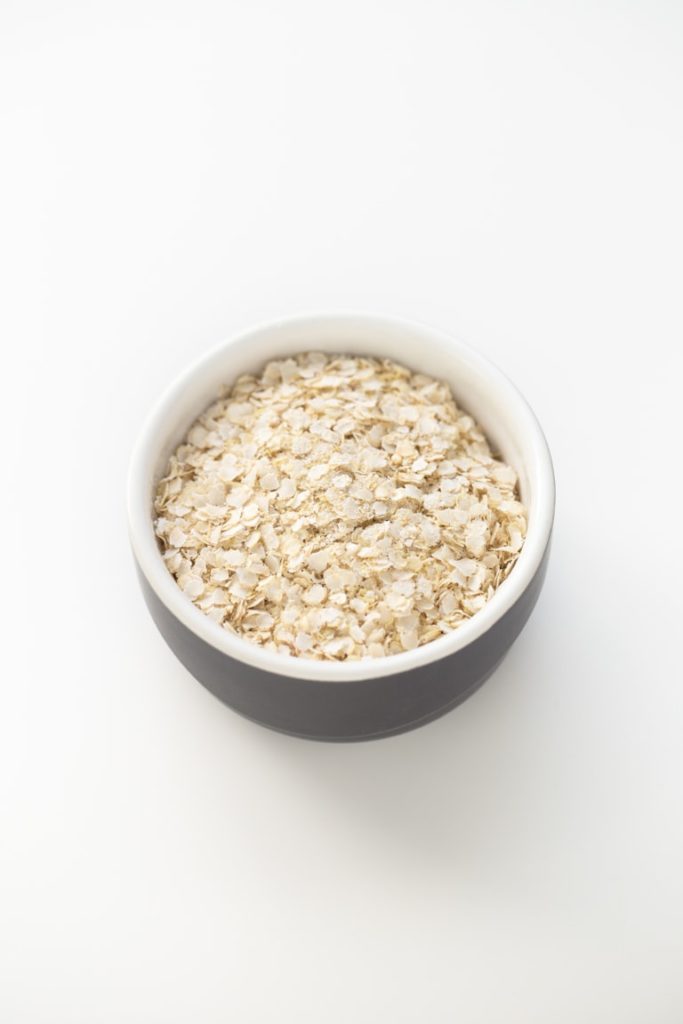
Just as you should exclude dairy or soy or sesame seeds or or or …, if they disagree with you. If gluten free oatmeal isn’t your friend, a good substitute to try is gluten free Quinoa Flakes.
Quinoa even makes a mean bowl of gluten free oat-free granola! (We call it “Quinola”!)
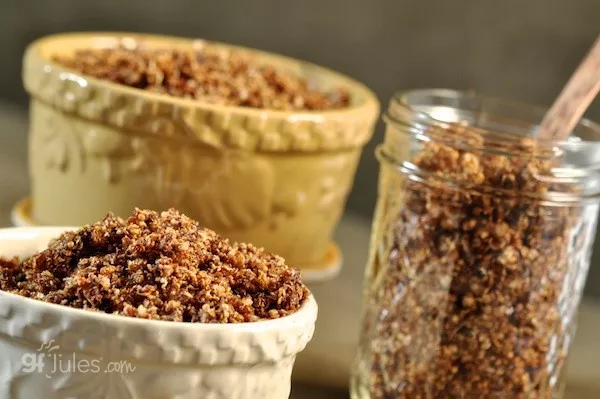
I hope this information is helpful to you as you navigate the world of safe gluten free foods.
✱P.S. If you’re wondering where to find Certified Gluten Free Oats, one easy place to look is on my website. I source and offer Organic Purity Protocol Gluten Free Oats in my shop. They are great for gluten free cookie recipes or for a morning bowl of gluten free oatmeal!
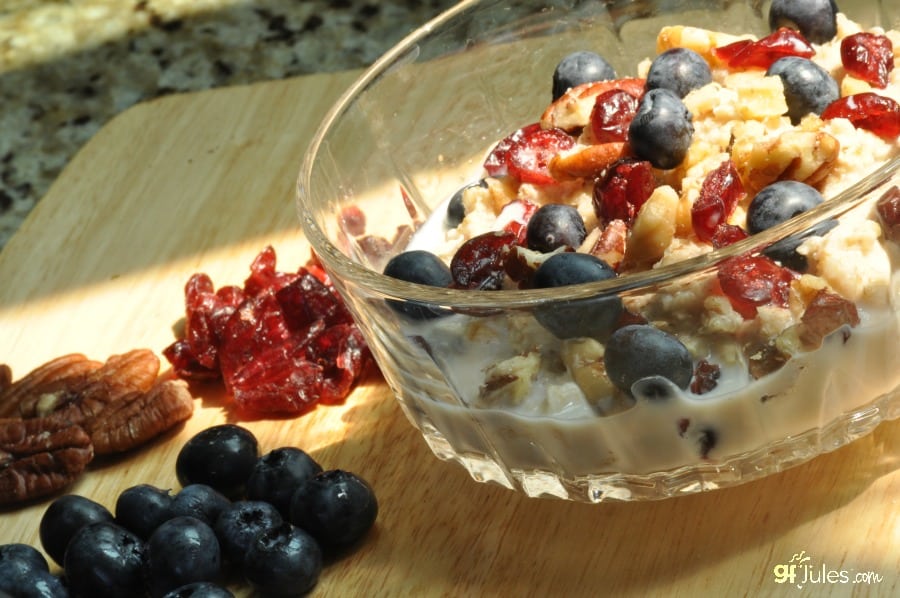
.
Find Organic Purity Protocol, Certified Gluten Free Oats Here
.
Some Delicious Gluten Free Recipes using Certified Gluten Free Purity Protocol Oats:
Gluten Free Oatmeal Raisin Cookies
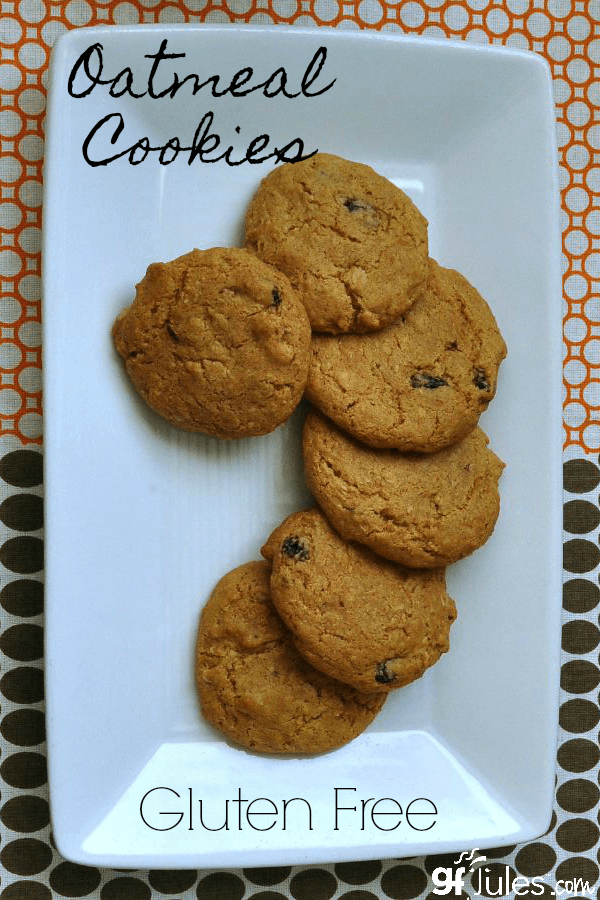
Gluten Free Oatmeal Cookies from gfJules Cookie Mix
Mock Little Debbie Gluten Free Oatmeal Cream Pies

Gluten Free Overnight Oats & Waffles
Gluten Free Overnight Oats Dessert
Homemade Gluten Free Granola Bars
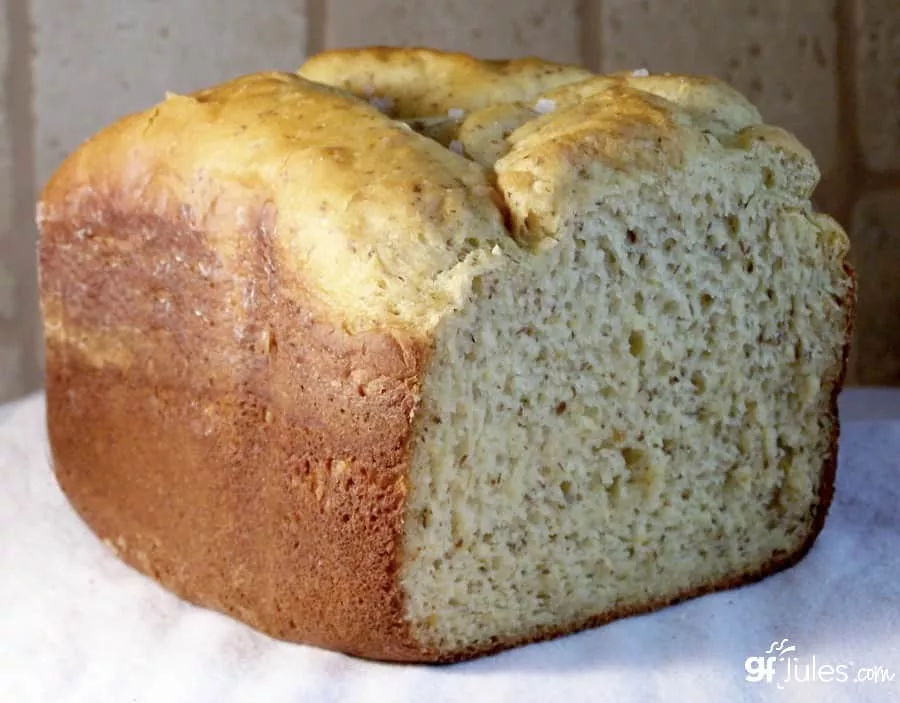
Homemade Gluten Free Granola with Apple Butter
Maple-Walnut Gluten Free Granola Cookies


